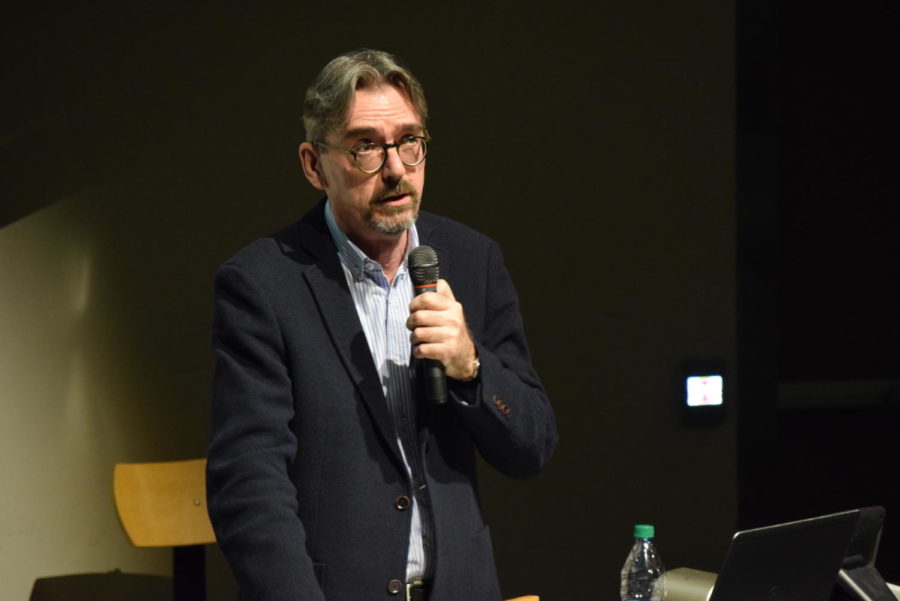Professor addresses sustainability, human values in design
Abigail Schafer/Iowa State Daily
Stuart Walker lectures an auditorium of students and faculty about his research approach of the way humans value sustainability. Walker is Chair of Design for Sustainability and a Director of the Imagination Lancaster Research Centre at Lancaster University in the United Kingdom, and has published many books on sustainable design.
April 3, 2017
Stuart Walker, professor of design for sustainability and co-director of the ImaginationLancaster design research center at Lancaster University, explained human values, discussed the importance of tradition and localization while exploring the relationship between creative practice and human values during a lecture Monday.
Walker’s research focuses and explores the environmental, social and spiritual aspects of sustainability. Apart from being a professor, he is also the author of “Sustainable by Design: Explorations in Theory and Practice” and “Design for Life: Creating Meaning in a Distracted World.”
“It’s our values and beliefs that make us human,” Walker said. “Therefore, we need to change our values to take care of the environment and address issues of social justice so there can be a fair distribution of wealth from our activities.”
Our human values can be changed by changing modernity and our self-enhancements like status, achievements and power, Walker said.
“By creating long-lasting products, we can improve the way we are currently consuming unsustainable products is harming the environment and producing waste,” Walker said.
Walker introduced the idea of Progressive Design Praxis, a form of design that aims to change the situation for the better by striving to interpret and understand ethical values.
“It is important to implement practical, social, personal meanings and economic means over a period of time to help explore and create new ideas that are better for everyone,” Walker said.
Walker hopes design students gain a particular perspective of design and sustainability to embrace the way design can make a useful contribution and deal with existing issues.
“Product design has been a part of the system that has helped create unsustainability,” Walker said. “I hope students can interpret what design is today and make a more environmentally and socially responsible design.”
Walker’s lecture was the fifth lecture of the “Changing Change: Thoughts and Actions for Sustainable Environments” lecture series co-sponsored by the graduate program in sustainable environments, department of industrial design, department of art and visual culture, Bioeconomy Institute and Office of Sustainability.
















